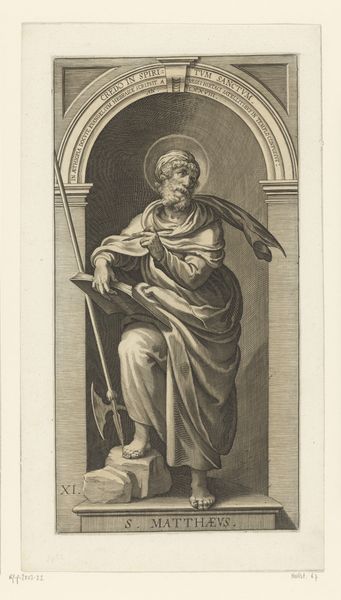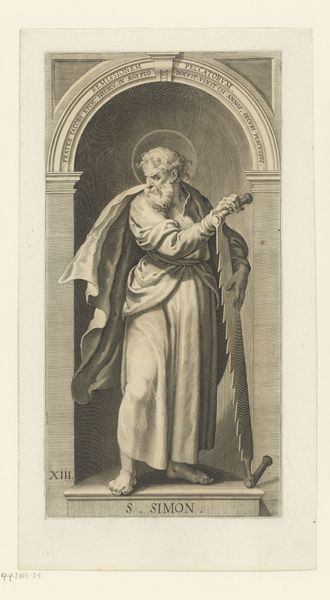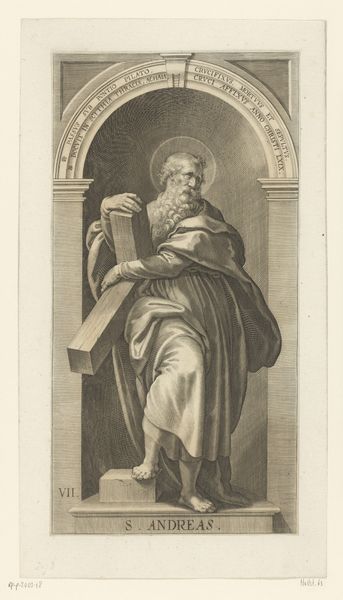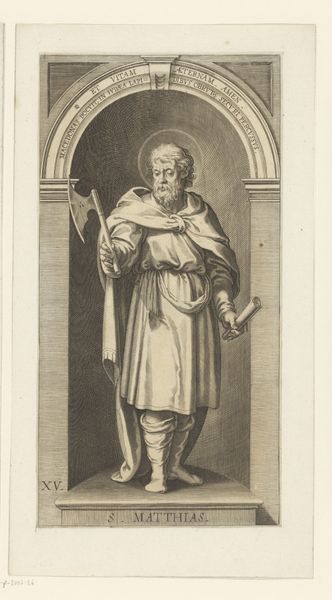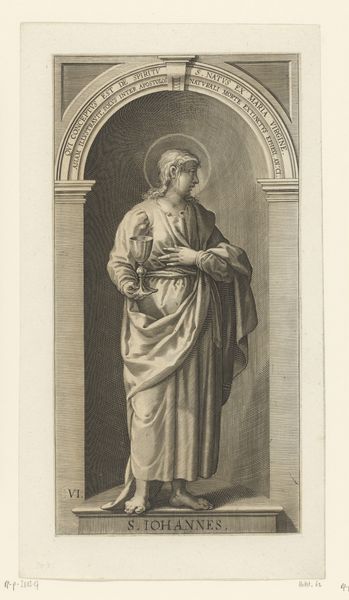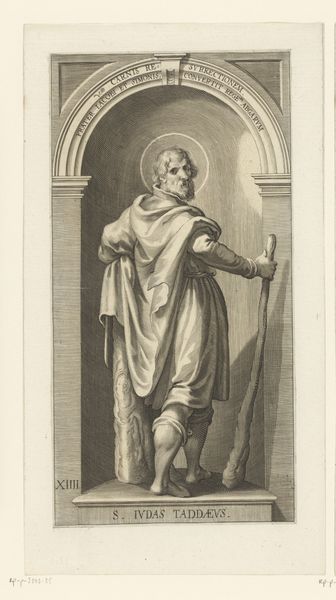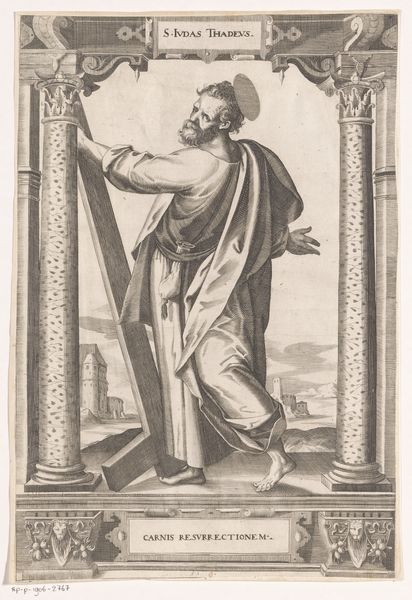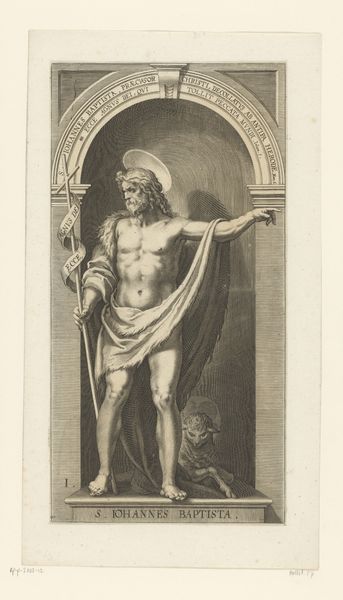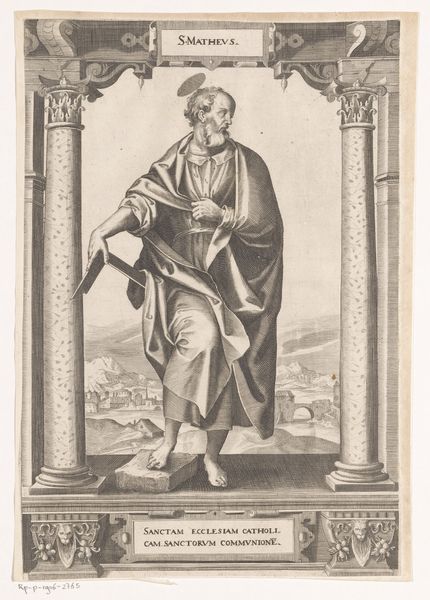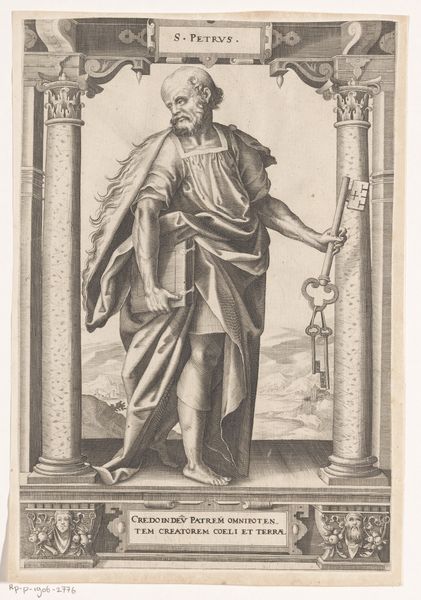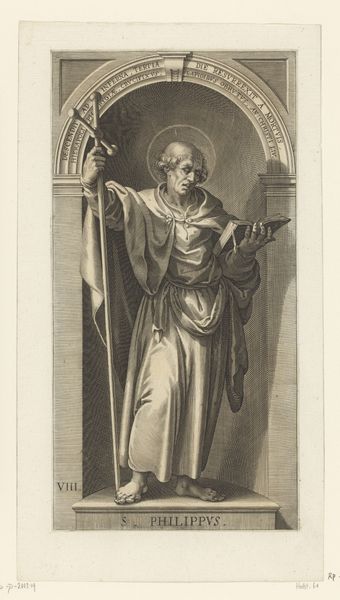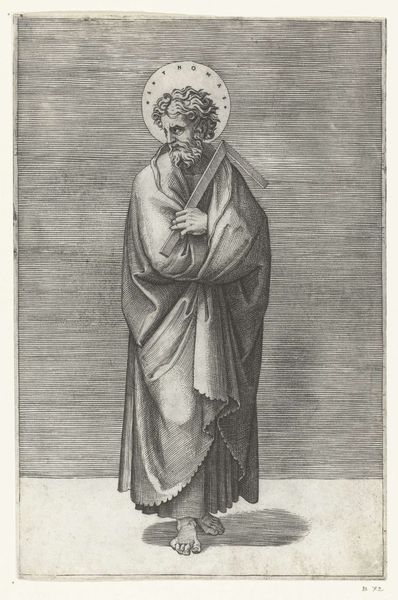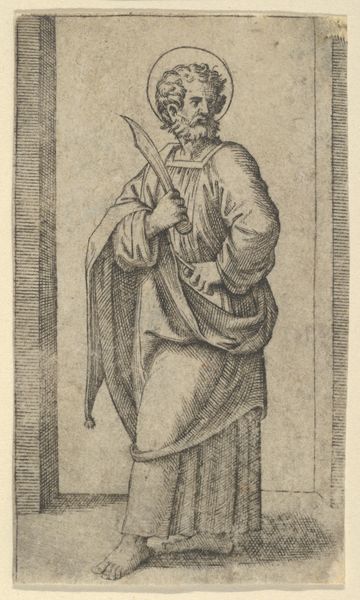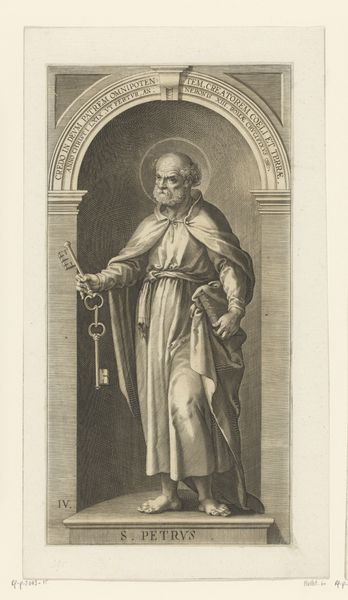
print, engraving
#
portrait
#
baroque
# print
#
portrait drawing
#
history-painting
#
engraving
Dimensions: height 301 mm, width 153 mm
Copyright: Rijks Museum: Open Domain
This print of St. James the Less was made by Lucas Kilian in the early 17th century. It's an intaglio print, meaning that the image is incised into a metal plate, which then transfers ink to paper under pressure. Look closely, and you'll see the extraordinary level of detail that Kilian was able to achieve through this method. Notice how the lines of the engraving capture light and shadow, giving the figure a sculptural presence. This was not just a means of efficiently reproducing images. It also required extraordinary skill. The engraver would have used specialized tools to carefully cut away the metal, in effect translating a design into a precise, repeatable matrix. Prints like this one were part of a booming industry during the Renaissance and Baroque periods. They were relatively inexpensive, allowing for the wide circulation of images and ideas. Kilian’s skillful printmaking would have played a vital role in disseminating religious imagery during a time of intense theological debate. It’s a reminder that even in art, materials and making are inextricably linked to social context.
Comments
No comments
Be the first to comment and join the conversation on the ultimate creative platform.
